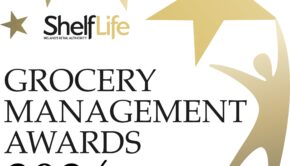In the papers this week 26 Sept – 2 Oct 2009

Tánaiste under more pressure to reveal big retailer profits; Consumer sentiment improves in September; Galway postman allegedly selling cigarettes door to door
2 October 2009
Developers who narrowly failed to get a material contravention to build a 2,276 sq m Tesco in a West Cork town are going to resubmit the application along with another major retail proposal, The Irish Examiner reported today.
"Tesco Ireland is 100% committed and has budgeted for the project which they indicate would commence immediately should a grant of planning permission issue," said developer Richard Coffey.
Also in The Irish Examiner this morning, there is increasing pressure on the Minister for Enterprise, Trade and Employment to force the big supermarket chains to open up their books and reveal their profits.Representatives for family-owned shops and stores have told Tánaiste Mary Coughlan that her proposal for a voluntary code on standards in the grocery sector is "worthless and unenforceable".
Consumers started to feel more positive about their finances in September, The Irish Independent reported this morning, according to new figures just published. The KBC Ireland/ESRI consumer sentiment index rose to 49.6 last month from 48.7 in August. Sentiment has remained broadly stable during the summer months.
A postman in Galway is selling cut-price cigarettes while he delivers the post, reports the Irish Independent. A retailer is said to have reported the postman to gardai after he noticed a dramatic cut in tobacco sales at his shop. The 3,000 strong Retailers Against Smuggling (RAS) organisation has now warned up to 10,000 jobs could be lost, as a result of Ireland becoming flooded with cigarettes sourced in Eastern Europe where they sell for less than €1 a pack.
A Millward Brown survey funded by RAS has also found smuggling of counterfeit cigarettes into Ireland nearly doubled in the first half of this year. The Sunday Times reveals that in the first six months of 2008 there were 28 seizures of illegal cigarettes, compared with 51 seizures in the same period this year.
Irish retailers are becoming more positive about the future, according to poll findings released this week by PricewaterhouseCoopers (PwC). The Irish Examiner reports that while 86% of those polled identified the cost of doing business here as a major obstacle to trade, that 54% are actually planning store expansions in the year ahead, with 15% pursuing merger or acquisition opportunities.
The Bank of England has indicated the pound is too strong at present levels, and is preparing the currency for further falls against the euro and dollar, according to The Sunday Tribune. Niall Haughey, founder of specialist currency provider Blue FX Markets, writes that retailers “will feel the frontline effects and will be forced to slash prices and margins to compete with goods that are once again cheaper across the border.”
Thomas McNally, the owner of Longford-based Mass card producer, MCC, has threatened the CSNA with legal action if it does not withdraw an allegedly “inaccurate statement” on mass cards made in its September newsletter. The Sunday Business Post has the full story on the dispute stemming from the introduction of the 2009 Charities Act, which was due to come into force on 1 September before it was challenged in the High Court by McNally.
A minimum pricing and promotions ban on alcohol in Scotland, would save 70 lives in the first year after implementation, rising to 370 lives a year after a decade. So claims research released by the University of Sheffield, ahead of the publication of a Scottish draft bill on the subject later this year. In The Times (UK), it has been estimated that the cost of a bottle of own-label supermarket vodka would rise from the present £7 to around £10.50, while the price of strong supermarket cider would rise from below £3 for three litres to more than £6.50. An average bottle of wine would cost at least £3.60 and a six-pack of lager £4.80.
The Government is "recklessly endangering thousands of retail jobs,” by failing to sign into law new legislation banning upward-only rent review of commercial property. According a "strictly confidential report” by Retail Excellence Ireland, revealed in the Sunday Independent, the situation for retail outlets is now so bad that in 60% of Ireland’s major shopping centre landlords are voluntarily reducing rents by up to half.
Fine Gael spokesperson on Community, Rural and Gaeltacht Affairs Michael Ring has also sought an amendment to the legislation allowing leaseholders to seek a downward revision of their rents, in the Western People. According to Deputy Ring. “Many retailers throughout this country who committed themselves to long leases in new shopping centres at the height of the property boom cannot get a downward revision.”
Retailers and gardai around the country are registering increases in shoplifting and other petty larceny, according to the Sunday Independent. Earlier this year, gardai in Tralee recorded a 69% increase in shoplifting between the end of 2007 and the end of 2008. An important factor towards such statistics, according to gardaÍ, was that addicts who stole to fund a drug dependency did not have the methadone and physeptone services in provincial towns that addicts in Dublin have availed of for years.
It is outrageous that supermarkets have already begun to stock Christmas goods, according to Dermott Jewell of the Consumers Association. In an article by the Evening Herald, which examines the phenomenon of Christmas arriving “out of season,” the advocat of consumer rights said the strategy represented “a bad approach by retailers…The pressure is on parents to buy these now and use them now.”
David McWilliams takes a look at the rising interest rates faced by retailers in the Irish Independent. According to the well-known economist, many retailers are “very exposed” to interest-rate moves, having expanded shops dramatically not only to respond to “the insatiable appetite of my old friend Breakfast Roll man, but also to try and stave off competition from big multiples like Tesco.” He reckons European interest rates “will rise progressively over the next year or two,” which “could be enough to push many Irish businesses over the edge.”
A truce has been called in the much publicised battle over the secret recipe for Spice Burgers, reports the Irish Independent. Walsh Family Foods which currently produces the fast-food snack, claimed Paddy Walsh, the son of the man credited with inventing it, was making his own burgers and passing them off as a company product. However Mr Walsh has now agreed to “leave the production of the Spice Burger to the company for a period of three years,” after which time he hopes the family business, which is currently in receivership, will secure a buyer.
The UK’s Takeover Panel has now decreed that Kraft must make a formal offer to Cadbury by 5pm on 9 November 2009, otherwise it will be prevented from making any new approach for six months. The Telegraph (UK) reports Cadbury spent three days wrangling with the Takeover Panel last week, over comments attributed to the group’s chief executive Todd Stitzer by a leading investment bank. However the British confectioner has now forced Merrill Lynch to correct its note, clarifying that Stitzer did not imply a fair value for the company and does not believe that the deal makes either strategic or financial sense.
Faced with the growing possibility of a federal tax on sugared drinks, Coca-Cola has said it is “ramping up” efforts to stress the importance of a healthy lifestyle in combating obesity. The so-called “soda tax” to help fund healthcare reforms has been gradually gathering momentum in Washington, with President Barack Obama stating he thinks the idea should be explored. Nineteen US states already impose extra state sales tax on sugared drinks and snacks.
More than one in four adult smokers now use pouch tobacco and roll-up cigarettes, with a particularly sharp rise in the proportion of women users, research recorded in The Times (UK) shows. In 1990 just one in 50 female smokers used hand-rolled tobacco, compared with one in five in 2007. The trend, revealed in Statistics on Smoking in England 2009, was described as partly a cultural shift, with roll-up smoking less stigmatised and more “hip” among the middle-classes, and partly economic.
UK supermarkets are expecting a boom in low-alcohol wine, reports The Times (UK). A survey of 800 adults has found that 59% liked the idea of low-alcohol wines, provided that they retained the flavour of conventional wines. Supermarkets have also called for tax breaks of up to 20% on low-alcohol wines.
Unilever will smarten up its range of grooming products, reports The Independent (UK), by adding brands including Brylcreem and Radox after agreeing to buy Sara Lee’s personal care business for €1.2bn. The move marks Unilever’s largest takeover in almost a decade and will increase its market share for skin cleansing products from 13% to 23%.
A ban on commercially bottled water, believed to be a world first, came into force in the Australian town of Bundanoon at the weekend. The Evening Herald reports the ban, which is supported by local shopkeepers, means bottled water can no longer be bought in the town in the Southern Highlands, two hours from Sydney. Instead, reusable bottles have gone on sale, which can be refilled for free at new drinking fountains.
High street giant Marks & Spencer has warned of "tough going" in 2010, despite reporting its best trading performance for two years. The retailer’s boss, Stuart Rose, said the market had "bottomed out" but expected rising tax burdens and lengthening dole queues to put pressure on shoppers. The Irish Examiner reveals the executive chairman’s cautious comments took the gloss off a smaller-than-expected 0.5% decline in like-for-like sales from M&S in the 13 weeks to 26 September.



 Print
Print






Fans 0
Followers